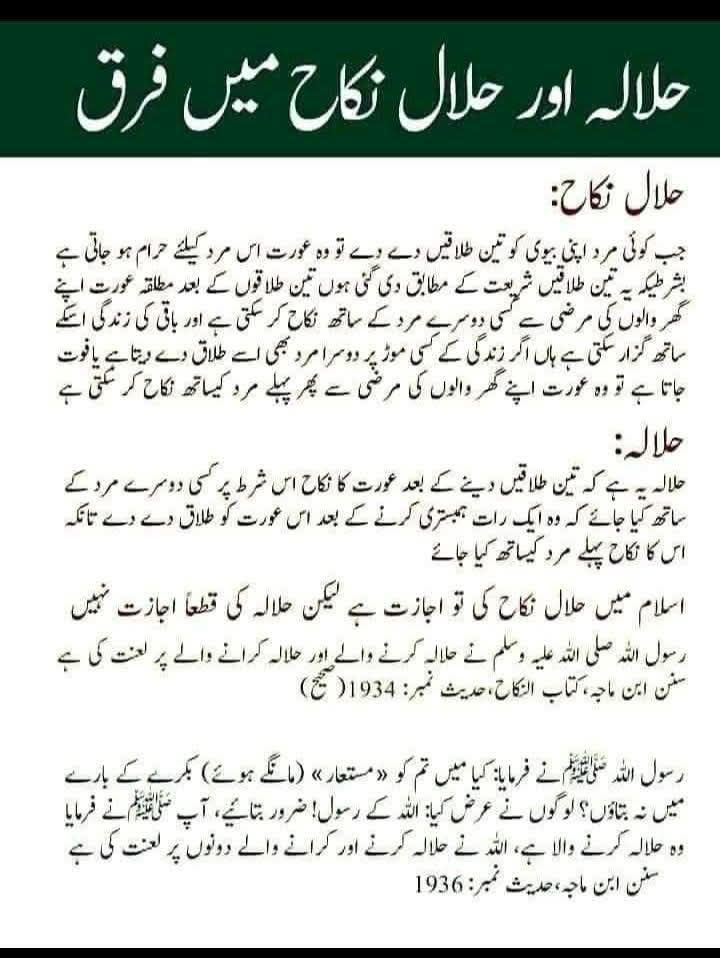Nikah Halala Urdu:
(Also known as Tahleel Marriage) is a practice in which a woman, after being divorced by Talaq, marries another man, consummates the marriage, and gets divorced again in order to be able to remarry her former husband.
Falsity About Halala
The Misconception among our society is making sense of the term Halala as a practice in which a woman, after being divorced by Irrevocable Talaq, marries another man, consummates the marriage, and gets divorced again in order to be able to remarry her former husband.
Misconception about Halala is that
- the practice of Halala forces the divorced wife for temporary marriage with another person,
- Wife has no choice of her own,
- Taking divorce by the second husband with intent to legalize the marriage with the former husband.
Truth About Halala
Quranic Views:
- In classical Islamic law, a husband may divorce by simply announcing to his wife that he repudiates her (Talaq).
- The initial declaration of Talaq is a revocable repudiation (á¹alÄq rajÊ¿ah) which does not terminate the marriage.
- The husband can revoke the divorce at any time during the waiting period (‘iddah) which lasts three full menstrual cycles.
- Resumption of sexual relations automatically retracts the repudiation
- The divorce becomes final when the waiting period expires. This is called a “minor” divorce (al-baynuna al-sughra) and the couple can remarry.
- If the husband repudiates his wife for the third time, it triggers a “major” divorce (al-baynuna al-kubra), after which the couple cannot remarry without an intervening consummated marriage by the wife to another man. This is known as Tahlil or Nikah Halala. Making the third pronouncement irrevocable acts as a deterrent to rash repudiations.
If a husband [after revoking divorce twice in a marriage bond] divorces his wife [for the third time], he cannot marry her until she has wedded another man.
But if this [second husband] also divorces her, it shall be no offence for either of them to return to each other, if they think that they can [now] keep within the limits set by Allah. Such are the bounds of Allah. He makes them plain to men who want to gain knowledge. (2-230)
- Majority of Muslim population work as per the Sharia law
- Sharia is the religious law governing the members of the Islamic faith.
- It is derived from the religious precepts of Islam, particularly the Quran and the Hadith.
- According to Islamic law (Sharia), once you give divorce to your wife, you cannot re-marry her immediately.
- She is free to marry other male of her choice.
- She would live with her new husband and family happily.
- But if her second husband dies or
- If the things turn wrong with her second husband too and ü unfortunately her second husband too divorce her,
- then in such condition she can look for other life partner including her first husband, or
- her first husband ( to whom she was married first time) can approach her to marry again.
